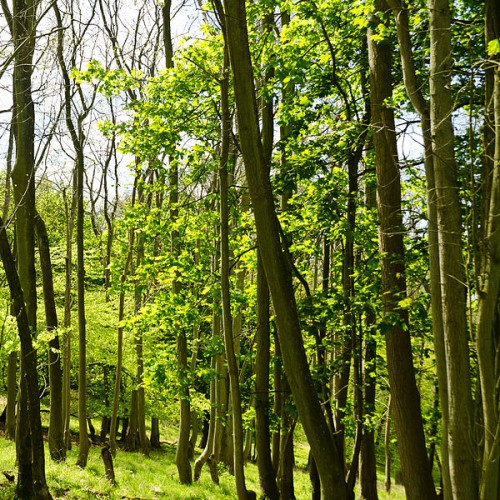PLANS to plant more than 70,000 trees in a Scottish ancient woodland have been slammed by leading forest experts.
The Royal Society for the Protection of Birds (RSPB) intends to expand the Cairngorm based pine forest after it has been ploughed, grazed and fenced over the last 200 years.
But experts say mass planting in Abernethy forest will destroy its unique “naturalness” and break the forest’s historic link to the original woodlands from thousands of years ago.

The RSPB plans to plant 60,000 aspen, birch, juniper and willow trees over 590 hectares of land around the edge of the forest.
It also wants to pioneer the planting of 12,000 pine and other trees.
Owned by the RSPB since 1988, the Abernethy forest is known for the ospreys that nest at Loch Garten, as well as red squirrels, crested tits, capercaillie and Scottish crossbills.
The forest is the largest native Scots pinewood in the UK and is part of a 49-square mile national nature reserve.
The director of Ramblers Scotland, Dave Morris, became concerned about the plans and asked three respected Scottish pinewood experts to comment.
One of the experts, Dr Adam Watson, has called the plans “arrogant”.
The Cairngorms research ecologist said: “It is arrogant to claim that man can do better in a few decades than nature over thousands of years.”
A report was compiled by Dr Watson and two other experts, former conservationist Dick Balharry and former forest manager Basil Dunlop, and is fiercely critical of the RSPB.
They said: “The current RSPB approach at Abernethy is unacceptable.”
“Any planting would forever destroy the naturalness of the site, break the chain, and devalue scientific study.”
They continued: “Claims by organisations that they are restoring or extending the Old Caledonian pinewoods by planting are therefore false and not credible.”
They argue there has been an agreement since the 1970’s that the best way to extend the forest is to enable it to regenerate naturally by spreading its own seedlings.
“Wildly inaccurate”
They say that the planting plans “are a conspicuous departure from previously agreed policies in the Cairngorms and would damage the integrity of the Old Caledonian pinewoods owned by the RSPB.”
But RSPB chiefs have fought back, calling the report “wildly inaccurate” and accuses the experts of making “many unsubstantiated claims.”
RSPB Scotland director Stuart Housden said: “Our immediate assessment is the report is wildly inaccurate and makes many unsubstantiated claims in the absence of facts, and this could have been clarified through dialogue.”
The boss also slammed the director of Ramblers Scotland, saying that he had ignored the invite to come see the forest himself and his decision to not release the report to the media is “extremely bad manners.”
Housden added that Abernethy forest has been extensively altered by humankind over the last two centuries and recent proposals have been consulted over with members of the public.
Forest monitoring over the last 20 years has revealed that broadleaved trees had been so badly damaged in the past that they were failing to naturally regenerate.
Mr Housden explained that “small areas will be planted without any ploughing or other intrusive techniques”.
He added that he was confident the landscape would come to be in a far better condition than it has been for centuries.
“We have a 200-year vision to restore this most precious of natural assets,” he stated.
Parts of Abernethy forest are naturally descended from the ancient woodlands that covered large parts of Scotland after the last Ice Age.